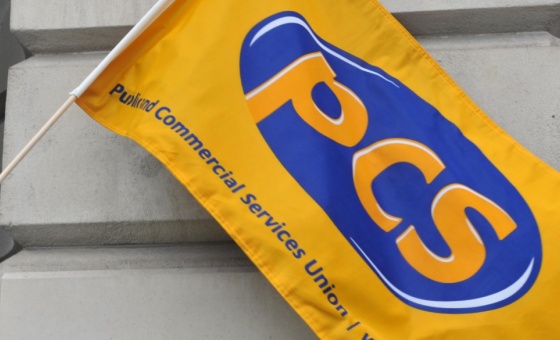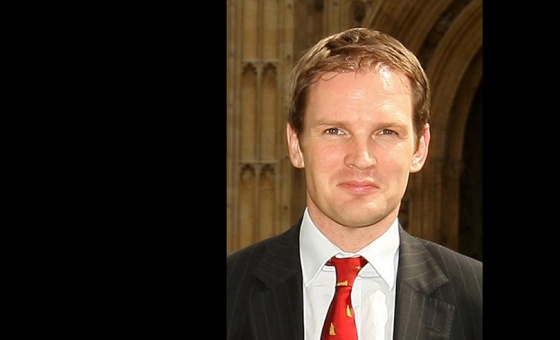This is the last article you can read this month
You can read more article this month
You can read more articles this month
Sorry your limit is up for this month
Reset on:
Please help support the Morning Star by subscribing here
IN EXACTLY a year’s time, Scotland will have the chance to determine its future.
It is a choice between business as usual on one hand, and a radical transformation of our society and economy on the other.
It is a choice between a vision of a decade of investment and another decade of austerity.
It is a choice between the only two parties which have led governments at Holyrood — the SNP and Scottish Labour.
The Covid-19 pandemic has rightly been the focus of all our political discussions in recent weeks and months.
But it has also brought into focus the need for the kind of real change Scottish Labour is campaigning for.
For those who say that we cannot afford to make lasting changes, especially after the huge temporary expansion of public spending since the lockdown began, I say this: we simply cannot afford not to.
State intervention in the economy, abhorred by the Tories at Westminster and used as a begrudging last resort by the SNP at Holyrood, has now returned to the public agenda.
For too long the economic strategy of UK and Scottish governments has been confined to a narrow, market-orientated horizon.
The scale of this crisis and the threat it poses to the livelihoods of so many demands that this horizon is rethought.
But while emergency relief for businesses and workers is welcome, we also need a longer-term economic plan as part of a new social contract with trade unions and employers.
The last few weeks have shown the potential for change, the importance of co-operation but also the deep-seated inequalities which are a feature of our economy.
Which is why restarting the old economy and relying on the market just will not work.
Returning to the old ways of working, the old injustices, the old unfair distribution of economic power and prosperity, the old balance between the public and the private sector and the old employment insecurities cannot form the foundations of the new economics we need to build.
Yet that is precisely what the SNP proposes to do. Nicola Sturgeon’s vision for independence, set out in the SNP’s so-called Sustainable Growth Commission report, would lead to another decade of austerity.
At the very time when Scotland needs investment to rebuild its economy, the SNP proposes redirecting economic resources into the reserves necessary for a new currency.
Instead, our response to this crisis should include an understanding that manufacturing is critical and greater self-sufficiency in a more diverse economy is essential.
The SNP has made a number of individual bailouts of struggling manufacturers on a “case by case” basis.
The cases of BiFab and Ferguson Marine show that these have been delivered in a botched and haphazard fashion.
That of the Caley railway works, now lying closed, shows that the risk of losing a century and a half of specialist skills is not reason enough to save a strategic asset in the SNP’s book.
This must change. The PPE crisis is just one reminder of why it matters to have a domestic industrial base, but this should have been obvious for any governing party purporting to represent the national interest well before the pandemic began.
So across the public sector we must see procurement used for community wealth-building, rather than to fuel the profits of a few global corporations.
That means a significant increase in the resources of the new Scottish National Investment Bank as part of a wider industrial strategy to grow indigenous businesses, as part of a proactive way of working with unions and employers in the planned development of our economic base.
We must also extend the role for local government in the direct provision of services like care for the elderly, and new investment in the pay and conditions of those who provide it.
Scotland’s care services have faced an uncertain terrain for years. The tragedy of the huge number of Covid-19 care home deaths must ensure we never again allow this sector to be treated as the poor relation of our NHS — which has itself suffered from a decade of underfunding with the SNP. It’s time to create a Scottish care service worthy of the name.
The housing crisis, left unaddressed by Tory and SNP governments alike, is now under the microscope too, with private renters still facing the threat of eviction if they fall behind with payments.
It’s time for a shift in the balance of power towards tenants — and we don’t need to wait till the elections for that.
Our housing spokesperson Pauline McNeill has just lodged our Mary Barbour Bill to cap rent increases.
It’s time to re-energise our public services, reassert our collective values as society, and rebuild Scotland in the image of its greatest asset — its people.
That means harnessing the expertise of workers in the workplace too in new forms of economic democracy.
And it means a new spirit of determination after the lockdown to reprioritise workers’ rights, health and safety at work, end the low-pay long-working-hours culture, stamp out zero-hours contracts and the gig economy and apply solutions which reduce our carbon emissions.
Don’t believe the Tories who say it’s impossible because they don’t want it, or the nationalists who want it to be impossible, in order to advance their narrow agenda.
The 2020s can be a decade of rebuilding and revival for Scotland — and that is the Scotland I am determined to lead.










